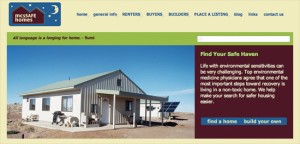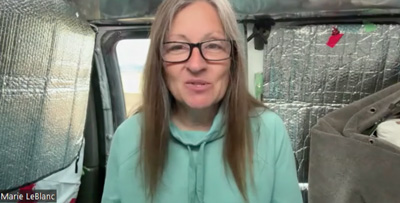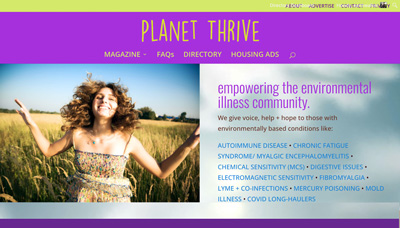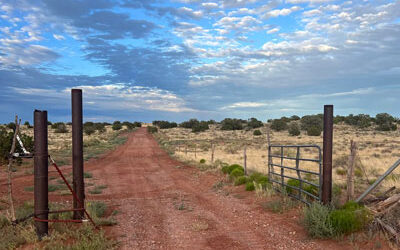 MCSsafehomes.com, a real estate listing website for environmentally safer housing that caters to those with chemical, electrical and mold sensitivities, has just published several comprehensive checklists to help guide both househunters and homeowners within the MCS-safer housing market. They have also updated their navigation menu to make housing listings and resources more readily accessible to renters, buyers, and builders.
MCSsafehomes.com, a real estate listing website for environmentally safer housing that caters to those with chemical, electrical and mold sensitivities, has just published several comprehensive checklists to help guide both househunters and homeowners within the MCS-safer housing market. They have also updated their navigation menu to make housing listings and resources more readily accessible to renters, buyers, and builders.
The three guides – a Homeowner’s Checklist, a Trailer Owner’s Checklist, and a Househunting Checklist – are now required to be filled out by all those placing a free listing on their website. The first two can be found under the “PLACE A LISTING” navigation menu on the website and the Househunting Guide can be accessed via both the “RENTERS>>renter checklist” tab and the “BUYERS>>buyer checklist” tab.
MCSsafehomes.com developed the checklists with the help of the chemically sensitive community. The comprehensive guides will help those in need of chemical-free, environmentally safer homes narrow down choices to fit their particular health concerns and environmental triggers. Always open to feedback, MCSsafehomes.com welcomes suggestions on how to improve any of the new checklists; leave your feedback on their website directly below the form you are commenting on.
Below is an excerpt from the Househunting Checklist:
Choosing a location
1. Climate
What is the general climate like, and how might it impact my MCS lifestyle? Are there big temperature changes from day to night or season-to-season that require adjustments in clothing/bedding/heating/cooling, and am I able to tolerate all the required changes? Are there high (or low) amounts of rainfall that may affect my access to water or ability to grow my own food or buy it locally? Living in a desert climate might not be wise if you do not tolerate store-bought produce and are dependent on growing your own food, unless you can afford to build your own greenhouse and hire someone to grow your food, or have the energy and knowhow to do it yourself.Are there local climate conditions that might be problematic for me (e.g. high winds, monsoons, electrical storms, high humidity, etc.)? Are there normally tornadoes, hurricanes, ice storms or other extreme weather conditions in the area I’m considering, and would I have a reliable support system to help me if repairs or alternate safe shelter was needed in an emergency?”
To print out the forms, click on the “print” symbol to the far right just under the “share and enjoy:” header toward the bottom of each page.










0 Comments